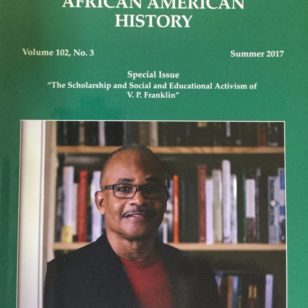 The fallout from the 101st Business Session has forced the regime to engage the membership and the Executive Council. They had been loath to do so. Yet, if members of the board had been indifferent, the people did not take kindly to being disenfranchised in the middle of our discussion of a motion to cease and desist in negotiating with any publisher. The members had doubts about the nature of the current leadership, and the leadership proved them right. The president and the vice president of membership got haughty and told us we were powerless. Turning the constitution and by-laws on their heads, they asserted us that the Executive Council, not the Business Session of the membership, was the legislative branch of our association, and that they could make decisions as they see fit. That was that, and we were, for the moment, disenfranchised!
The fallout from the 101st Business Session has forced the regime to engage the membership and the Executive Council. They had been loath to do so. Yet, if members of the board had been indifferent, the people did not take kindly to being disenfranchised in the middle of our discussion of a motion to cease and desist in negotiating with any publisher. The members had doubts about the nature of the current leadership, and the leadership proved them right. The president and the vice president of membership got haughty and told us we were powerless. Turning the constitution and by-laws on their heads, they asserted us that the Executive Council, not the Business Session of the membership, was the legislative branch of our association, and that they could make decisions as they see fit. That was that, and we were, for the moment, disenfranchised!
A month later, without conceding they were wrong and the people are the power, the regime now finds it necessary to acknowledge the rank and file and appear to seek our consent. To be sure, they mean to press ahead. Laying the ground work to do so, Sharon Harley has sent out a constant contact to the membership stating their case. To be sure it is not the same case with the same promises made before the Business Session. Despite being an outstanding historian, Harley has authored a document full of misleading and erroneous information. She has silently altered promises and data about the deal they are attempting to negotiate with the University of Chicago Press. It appears that the regime thinks this public relations campaign will placate the membership and allow them to continue the process of selling out of the century of self-publishing the Journal of African American History. The Big Lie is about a penny-ante status move.
After telling us that Chicago had promised ASALH $100,000 plus in “profits” and that everyone would get a hard copy of the Journal of African American History, the regime has deflated the Big Lie after it became laid bare by V.P. Franklin’s slip. If you do not recall, the editor of the JAAH sent out an email telling everyone that the editorial office’s expenses would be paid for by ASALH out of the “income” from Chicago. So the promised $100,000 of profits were not that. Moreover, when many of us made a big thing out of how much the 2,000 hard copies would cost–the balance of the promised profits–the regime knew it had a problem. Well, they probably also knew it because “our attorney” from Blank Rome was in the Business Session, and I’m sure that as an officer of the court our attorney informed them that truthful financial disclosures must be made to decision makers to comply with the conditions of the Sarbanes Oxley Act of 2002. Moreover, it was not very becoming for our Treasurer, Gilbert Smith, to be one of those touting a “net” or “profit” of $100,000, knowing editorial expenses must be charged against it.
In this new document from Sharon Harley, numbers take a vacation. Indeed, from that letter alone, we have no idea now what the bottom line will be on the sellout. Profit, what profit? Who said anything about bottom lines? We are left only with the false statement that the journal makes $240 a year and left to assume that Chicago will net us more than that. The document no longer makes the claim that Chicago will provide members free print copies. It now says that about half the members will receive free copies–but it does not say who will pay for it. In general, Chicago does not pay for the copies received by the members of scholarly associations. The individual members do for a fee of $20. Now, it likely means that ASALH will pay for it out of its “income” from Chicago. It so, this number is roughly $20,000. Would Chicago swallow the cost? Harley does not say who pays and how much. What is the bottom line on this proposed sell out? Numbers and transparency, where art thou?
Of the $100,000 in the original promise, the costs of the editorial office (approximately $55,000 to $60,000 with increasing staff costs) and the $20,000 for print copies the net revenue would be roughly $20K to $25K. Mind you, if they get around the constitution and by-laws and sign a deal, they would have not delivered free journals promised those in attendance. Making good on that pledge would have meant $5,000 in profit.
Ladies and gentleman despite what our CPA-holding treasurer reported, the Journal of African American History profits us $25,000 or more a year. Yes, this is why the come up with the following formulation: “ASALH Treasurer Gilbert Smith…noted in October 2016 that between 2011 and 2014 ASALH publications had net losses. In 2015 the Journal of African American History had a net income of $240, which is slightly better than break even.” Why did not our CPA Treasurer report what the JAAH’s revenues were for those four years? Why are they folded into a number about all publications? That’s because the revenue over expenses were on between $35,000 and $45,000. What happened in 2015–an accounting change recommended by the auditors to place the revenue for a given volume in the same fiscal year rather than when we receive it. Effectively money received in 2015 went to the financials for 2014, reducing the profit to $240. Thus, in 2016 we can expect the revenue of $25,000 or more.
Now, mind you, our JAAH revenue will decline as the journal business across America is declining. Yet this kind of poor reporting to members after literally lying to members about $100,000 is shameful on the part of the leadership. This is no way to get your way. This is misleadership. If I am in error, then the leadership should provide the JAAH revenue-versus-expense reports for the years 2011-2016, since the funds for volume 100 (2015) are all in. Let us argue about real reports, not phantom claims from people who a month ago tried to pass off revenue as profits.
After a century of self-publishing, the new leadership has suggested first that we had not been our own publishers. Secondly, they argued the Journal of African American History made no money, and Chicago promised us profits of $100,000, which we could use to pay for the other things in the life of the Association. Now we know there is no Chicago advantage, not a tangible one. If it is not about money, could these folks be in pursuit of status? Do other people have colder ice?
(More on Harley’s Letter Later)




